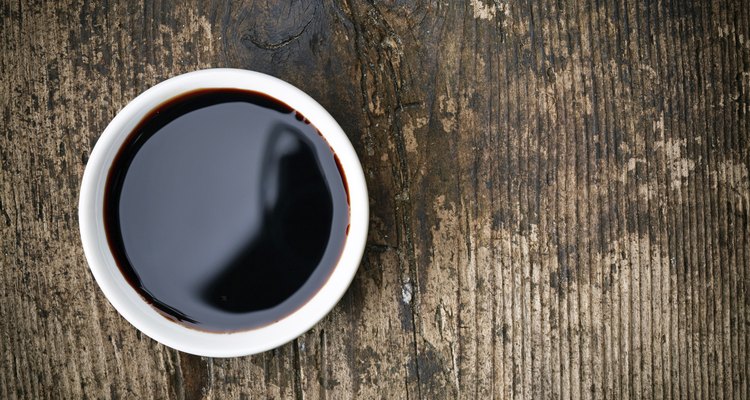
Magone/iStock/Getty Images
Balsamic vinegar started appearing in American markets in the late 1970s, but Italians have used the dark, syrupy vinegar for centuries to flavor salads, marinades and sauces. The vinegar can also be used as a digestive, dessert sauce, and as a finishing sauce for broiled fish or roasted meats and vegetables. Some balsamic vinegars are cared for and aged as carefully as fine wines, so you want to store them properly so their complex flavors remain intact.
Cool and Dark
Balsamic vinegar deteriorates in the heat and when exposed to bright light. Choose a pantry or cupboard or another cool, dark space if you primarily use the vinegar to create sauces and reductions and want it at room temperature. If you use balsamic mostly to make salad dressing, you can store it in the refrigerator.
Airtight and Opaque
Keep balsamic vinegar in a dark, opaque bottle or decanter that's fitted with a cap or cork. Clear containers allow light in, which can degrade the vinegar. Air is also an enemy of quality balsamics and can ruin delicate flavor profiles, so always keep the vinegar's bottle tightly capped when it's not in use.
Shelf Life
Properly stored balsamic vinegar can last three to five years, and sometimes longer. If you have a high-quality vinegar with a specific taste profile, you may notice its flavor changing as it ages. Lower quality vinegars may grow sharper and more acidic. Old vinegar isn't dangerous to consume, but it may become unpalatable.
Age Old
Some of the highest quality balsamic vinegars available are up to 150 years old. Don't expect your supermarket balsamic to become a prized, traditional vinegar the longer it sits, though. You have to start with a quality product for it to age into perfection. These long-aged products can cost between $75 and $400 per bottle.
Related Articles

Why Does Wine Not Expire?

What Does VSOP Mean?
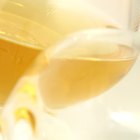
How to Store Cognac

How to Thicken Vinegar

How Long Does Liquor Keep in Storage?

How to Make Rosemary-Infused Vinegar
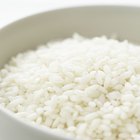
What to Substitute for Mirin

Tanqueray Gin Ingredients

Do Uncooked Noodles Ever Go Bad?
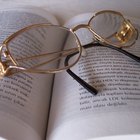
How to Remove Eyeglass Coating With ...

How Long Should a Wine Collector Keep a ...
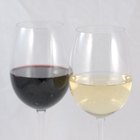
How to Make Homemade Wine Taste Better

How to Make Limoncello

Can Expired Apple Juice Be Used for ...

Why Is White Wine Turning Brown in a ...
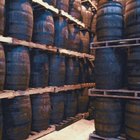
The Difference Between Single Cask & ...

Does Unopened Sake Go Bad?
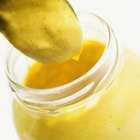
Is Mustard Dangerous to Eat When It Is ...

What Is Cognac Leather?
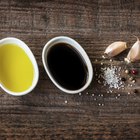
How to Mix Your Own Vinegar & Oil
References
Writer Bio
Andrea Cespedes is a professionally trained chef who has focused studies in nutrition. With more than 20 years of experience in the fitness industry, she coaches cycling and running and teaches Pilates and yoga. She is an American Council on Exercise-certified personal trainer, RYT-200 and has degrees from Princeton and Columbia University.
Photo Credits
Magone/iStock/Getty Images